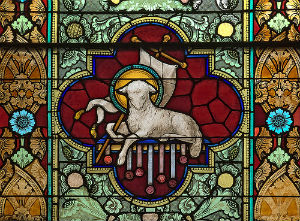
 HILADELPHIA is home to a fascinating organization called the International Institute for Culture (IIC). Their website describes the non-profit as a research center devoted to promoting international understanding through cultural means. Practically, this means that the IIC hosts conferences and concerts, art exhibits and Oktoberfests, and even courses in Latin and Greek.
HILADELPHIA is home to a fascinating organization called the International Institute for Culture (IIC). Their website describes the non-profit as a research center devoted to promoting international understanding through cultural means. Practically, this means that the IIC hosts conferences and concerts, art exhibits and Oktoberfests, and even courses in Latin and Greek.
At the heart of the IIC’s vision for culture is the Catholic Faith. As their website explains:
The purpose of IIC is not to advance the idea that it is possible to restore some ideal Christian past. There never has been one. Rather, it is to look at the way in which the Faith has shaped cultures in the past and the culture in which we live today, the manner in which it preserved and elevated whatever was good and noble in any culture which it encountered and repudiated whatever debased the human spirit. With such knowledge and with a commitment to the Redeemer of Culture, we can begin working together to build the new “civilization of love.”
Recently announced is a new program of talks at the IIC, billed as a “Sunday Brunch and Lecture Series.” Building upon an earlier lecture series that focused on art and architecture, this new series finds its focus in music and kicks off next week.
Sunday, October 15, 2017
The Unity of Ascent: Musical Supplication and Redemption in Early Modern Venice
Dr. Sara Pecknold, Musicologist, The Catholic University of America
Sunday, November 5, 2017
Pedro de Gante and the Creation of Euro-Aztec Catholic Song in Sixteenth Century Mexico
Dr. Lorenzo Candelaria, Music Historian, University of Texas at El Paso
Sunday, December 3, 2017
Gregorian Chant and the Spirit of Liturgical Prayer
Dr. Timothy McDonnell, Director of the Institute of Sacred Music, The Catholic University of America
Sunday, January 7, 2018
The Language of Music to Address the Holy
Mark Bradford, former Director of Sacred Music, St. Charles Borromeo Seminary
Sunday, February 4, 2018
Pythagoras, Bach, and Universal Harmony in the Great B-Minor Mass
Dr. Lorenzo Candelaria, Music Historian, University of Texas at El Paso
Sunday, March 4, 2018
Music in Honor of San Gennaro: Early Modern Martyr, Miracle Worker, and Musical Protagonist
Dr. Anthony DelDonna, Musicologist, Georgetown University
Sunday, April 8, 2018
The Island of Catholic Exuberance in Protestant Germany: Music of the Dresden Court
Dr. Timothy McDonnell, Director of the Institute of Sacred Music, The Catholic University of America

For each of these events, brunch will be served at 12:45 PM at Ivy Hall (6331 Lancaster Avenue, Philadelphia, PA 19151), which follows the 11:30 AM Mass at Our Lady of Lourdes Church nearby. The lectures will begin at 2 PM, and the suggested donation is $15/person or $35/family to defray the cost of the brunch and lecture.
